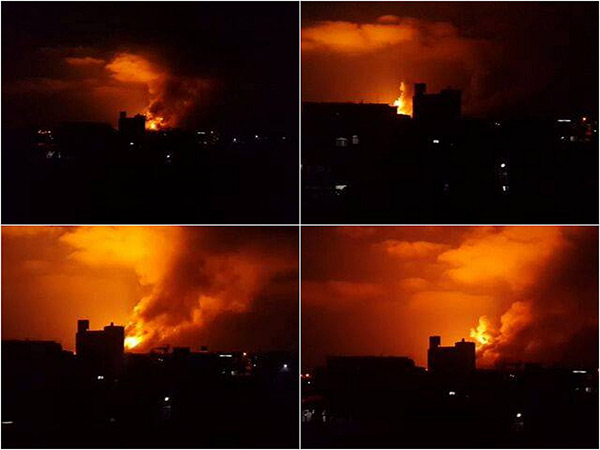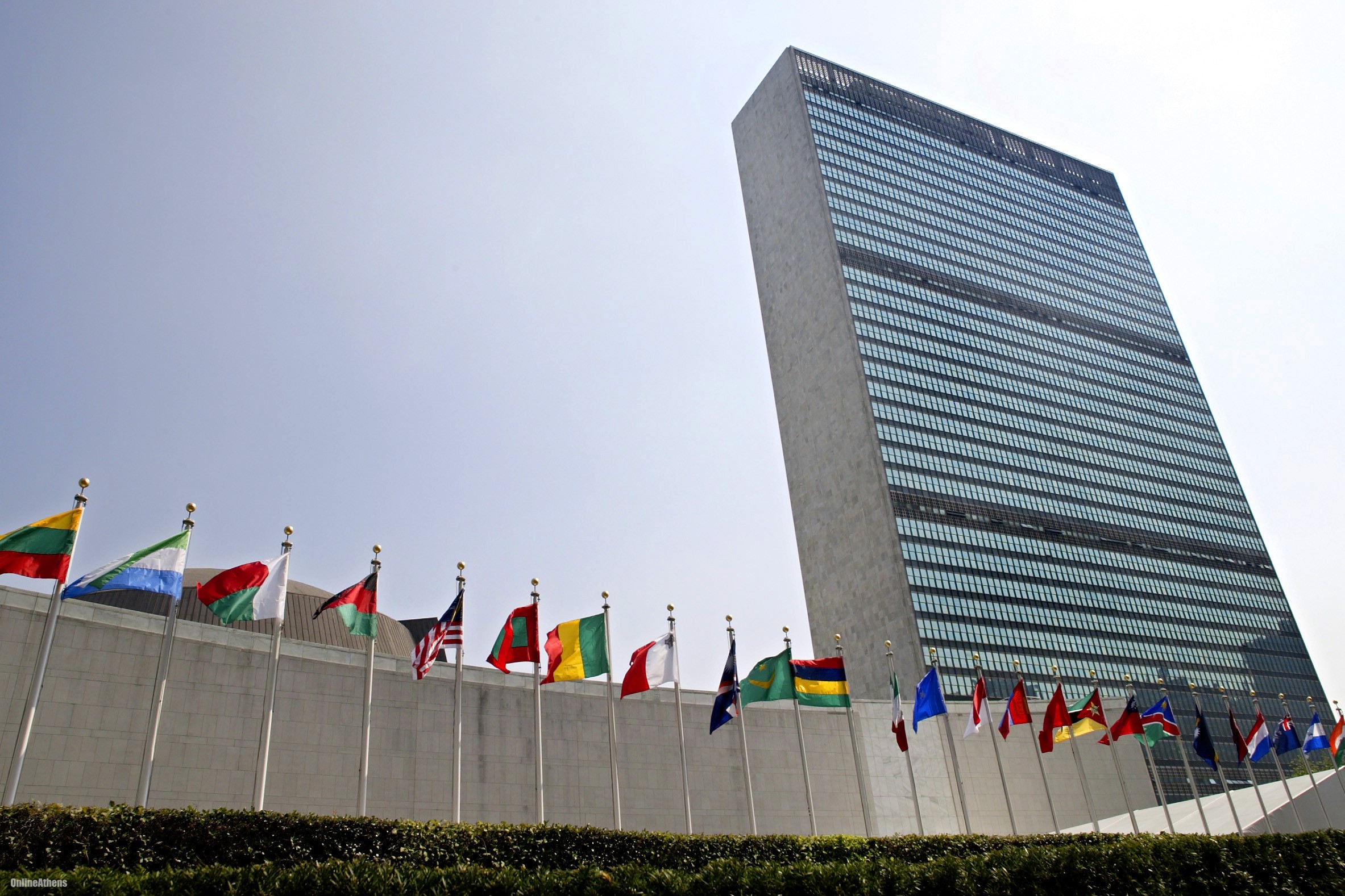In a tour de force of shallow journalism, the leading newspaper in America and arguably the world recently did what they called a news analysis on the United Nations. It’s central thesis? “The problem is not that the major world powers don’t care. It is that they care too much,” the piece risibly pronounced.
 In what amounts to an apologia for UN and member state inaction, the short and thin analysis went on to quote the outgoing French ambassador to the UN, Gérard Araud. He tells it like it is: “When you have a crisis where a major power has a national interest involved they will try to block interference by the Security Council…the U.N. is in charge of crises that are of no interest to anybody.”
In what amounts to an apologia for UN and member state inaction, the short and thin analysis went on to quote the outgoing French ambassador to the UN, Gérard Araud. He tells it like it is: “When you have a crisis where a major power has a national interest involved they will try to block interference by the Security Council…the U.N. is in charge of crises that are of no interest to anybody.”
Look closely and tell your children; we’re witnessing to the slow-motion collapse of the vaunted international order. The question is, must we be bystanders?
Ban Ki Moon, speaking belatedly and weakly about the slaughter in Gaza, said today, “In the name of humanity, the violence must stop.” It might have some effect if he had called for charges to be brought against Netanyahu in the International Criminal Court. Of course Ban Ki Moon, who gives new definition to the phrase mild mannered, is perfectly suited to preside over an enfeebled United Nations.
For a moment, don’t pick sides and consider two festering boils on the ass of the world’s body politic. In the huge prison that is Gaza, over 1000 people have been killed, most of them civilians and many of them children. Israel, armed with tanks, fighters, helicopters and heavy artillery, sees no disproportionality, though Hamas’ pathetic rockets have killed only three Israelis, other than their precious soldiers. Israel continues shelling homes, schools, hospitals and UN refugee centers with impunity, as their disingenuous American backers try to broker a deal between parties that have no parity whatsoever.
In Ukraine, the crash site of a civilian airliner callously downed by a bunch of thugs that Russia armed with surface-to-air missiles, has become the focal point of fighting between the separatists and the Ukrainian government. The rump of the international community cannot even summon enough political will to secure the site and let inspectors do their work unimpeded. As malignant as Putin is, he’s no Hitler or Stalin. The Western media needs an enemy, and better yet a bogeyman, to feed its voracious maw, and Putin and Russia are complying nicely.
Both of these boils will be eventually lanced one way or another, even if it’s by Israel reducing the entire concentration camp of Gaza to rubble, and Ukraine becoming another Syrian-like vortex. Only one thing is certain: many more toxins will be injected into bloodstream of humanity.
Future generations will look back with shame at this time (if there are future generations to look back), yet there seems no shame in any of the parties directly or indirectly involved. If the ultimate aim of evil is to make every living person give up on humanity, it’s closing in fast on its goal.
Though the political and media elites are loathe to acknowledge it, people are once again compelled, as innumerable civilizations before us have been compelled throughout history, to start from scratch. The difference this time is that a group of people can no longer split off and move to some new territory to start fresh. We have to work where we are, with what we are.
Can and should the UN be saved? What is required for the United Nations to become an effective body of global governance in the de facto global society?
The chief argument for United Nations ineffectuality, made by the UN itself, is that ‘the UN can only do  what it’s member states authorize it to do.’ If that defense was coupled with a call for some degree of autonomy for the UN, under a completely reconfigured Security Council, it might have some merit. But it reflects a resignation to the status quo paralysis of the so-called international community, and a refusal to take any independent responsibility for international governance. As such, the UN argument for its inadequacy is a self-fulfilling prophecy of UN weakness.
what it’s member states authorize it to do.’ If that defense was coupled with a call for some degree of autonomy for the UN, under a completely reconfigured Security Council, it might have some merit. But it reflects a resignation to the status quo paralysis of the so-called international community, and a refusal to take any independent responsibility for international governance. As such, the UN argument for its inadequacy is a self-fulfilling prophecy of UN weakness.
Four elements are necessary for the emergence of a new, and imperfectly true world order. The first is a psychological revolution in human consciousness as a whole. Politically means that identification with particular groups (that is, man’s ancient tribalistic mentality) gives way in enough people to emotionally experiencing themselves as belonging first to the human community, rather than any nation or group, secular or religious.
The second is that the philosophical foundation for a new order be poured before the old order completely collapses. This begins with the premise that it cannot be saved, only salvaged perhaps, if a new component is introduced, one befitting the global reality. (Note to politicians and pundits: Stop conflating the international and global spheres; there is a distinction and a difference between them.) The UN may be necessary but it certainly isn’t sufficient. A new, non-power-holding body of great moral suasion has to be created, based not on the nation-state but the undivided individual (a redundancy, but a necessary one).
The third is that genuine leadership has to appear at all levels. At a subconscious level, many people, especially in America and Europe, hoped that Barack Obama would provide the vision, strength of character, clarity of purpose and articulation to lead the world in a new direction after the two-headed wrecking ball of Bush-Cheney. But he didn’t have it in him. Are there people at the national, international and global levels who do?
The fourth element, unfortunately, is some global calamity that makes it impossible to cling to the old order. The course of history is one part inevitability, and one part possibility. But the psychological, philosophical and leadership elements have to be in place before the catastrophe and collapse occur.
A few human beings can and will inwardly survive, and that may be enough to retain a future of humanity. But is this world damned? Can the disastrous course of humankind change now?
Absence of evidence is not evidence of absence. Things hang in the balance. There are no bystanders.
Martin LeFevre

